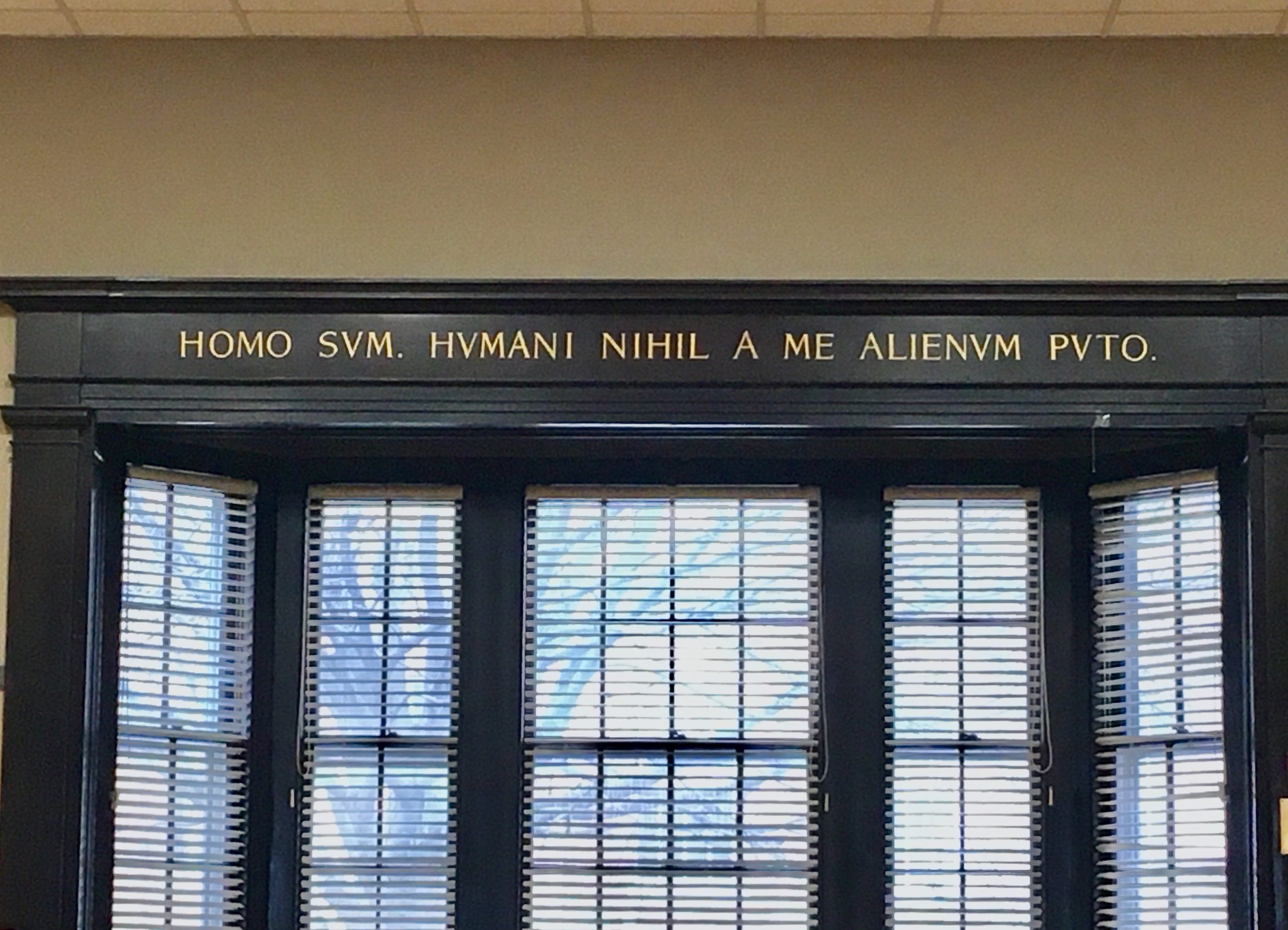Latin Quotation in Channing Hall
Inscription, Latin quotation c. 184 BCE.
From the play “Heauton Timorumenos” (“The Self-Tormentor”)
by Terence (a.k.a. Publius Terentius Afer)
“Homo sum: humani nihil a me alienum puto.”
(“I am human: I consider nothing that is human alien to me.”)
Homo sum: humani nihil a me alienum puto – “I am human: I consider nothing that is human alien to me.” – is from a play written by Terence (Latin name: Publius Terentius Afer), who was a Roman slave in the 2nd century BCE. His master, a Roman senator, recognized Terence’s talent and freed him. Terence wrote six plays, which remained popular through the Middle Ages and Renaissance. Long regarded as models of pure Latin, Terence’s plays form the basis of the modern comedy of manners.
Kwame Anthony Appiah, a 21st Century professor of philosophy at New York University, describes the scene in which this phrase is uttered. “A busybody farmer named Chremes is told by his neighbor to mind his own affairs; the “homo sum” credo is Chremes’s breezy rejoinder. It isn’t meant to be an ordinance from on high; it’s just the case for gossip.”
Over the centuries, the phrase has taken on a life of its own. It has been used in many contexts, ranging from discussions of human rights, to expressions of solidarity among different groups of people, to promoting the philosophy of cosmopolitanism, which espouses being a citizen of the world. The quote is perhaps best understood as a powerful reminder of the importance of empathy and understanding in promoting harmony and cooperation among people.
The inscription was painted on the wall at the urging of Rev. M. McKarl Nielsen, our minister from 1947-1951.

